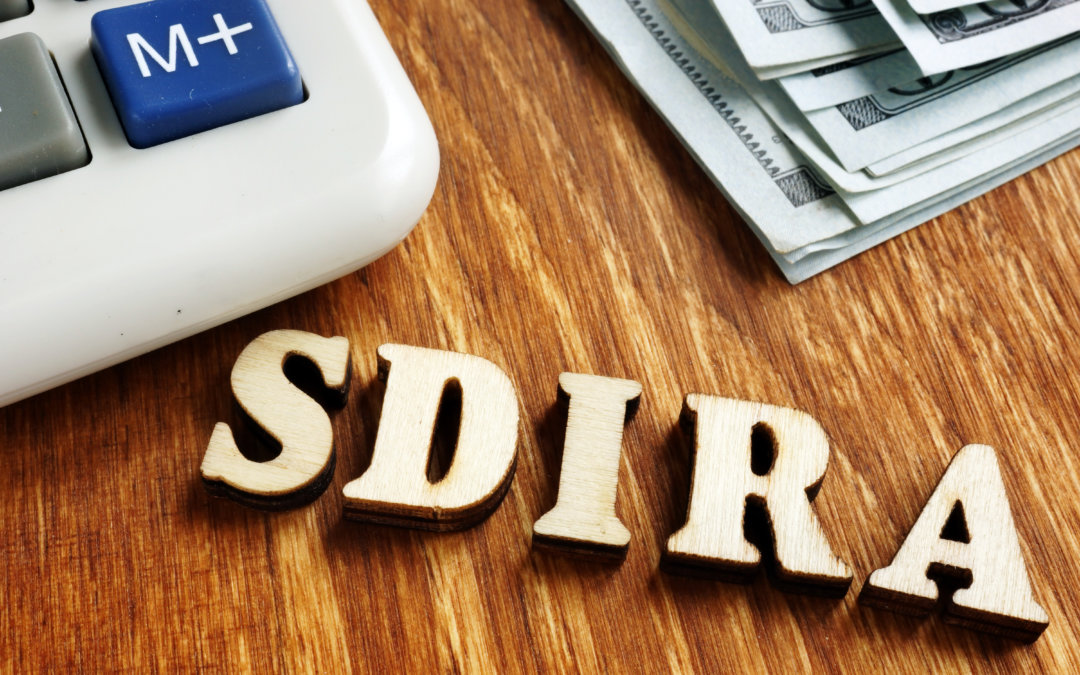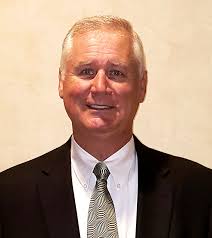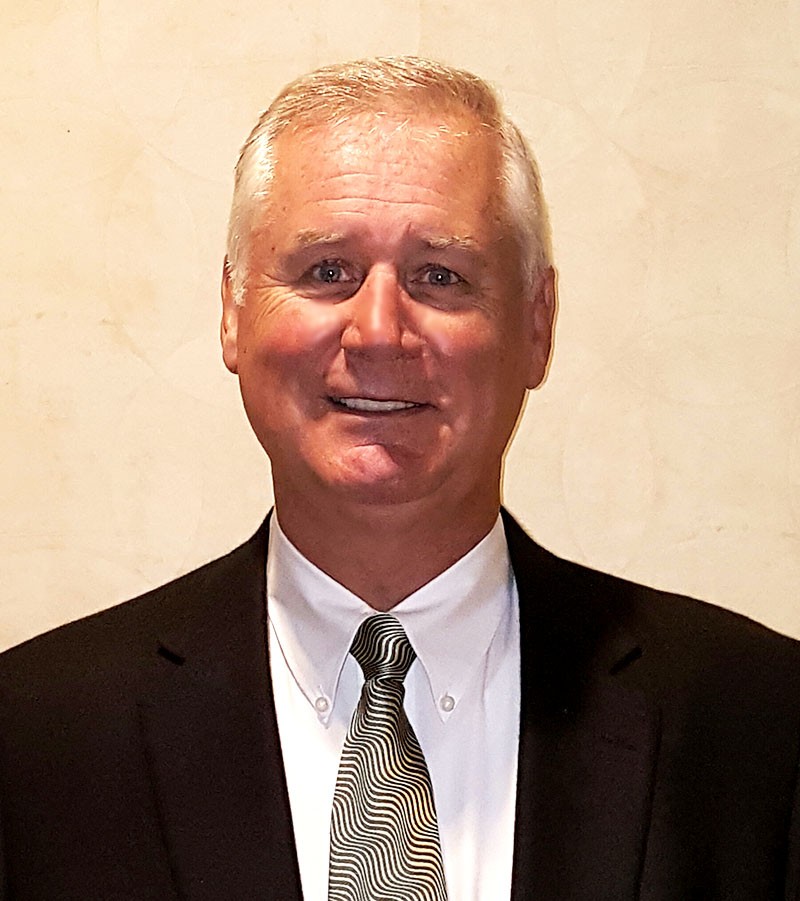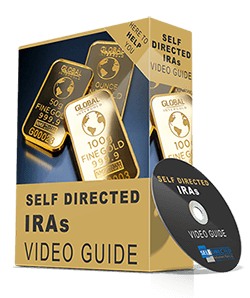
by Rick Pendykoski | Oct 2, 2017 | Uncategorized
Self-directed Roth IRAs expand your investment options massively. However, to ensure that you gain maximum tax benefits and investment returns, you need to know about the types of investments you can and cannot make using your self-directed Roth IRA LLC. Self-directed Roth IRAs expand your investment options massively.
However, to ensure that you gain maximum tax benefits and investment returns, you need to know about the types of investments you can and cannot make using your self-directed Roth IRA LLC.
What are different Self Directed Roth IRA Investment Options?
Below are the Self Directed Roth IRA Investment Options where you can invest:
- Foreign currencies
- Domestic or Foreign real estate
- Residential or commercial real estate
- Stocks, bonds, mutual funds
- Raw land
- Mortgages
- Foreclosure property
- Deeds
- Mortgage pools
- Private loans
- Tax liens
- Limited Liability Companies
- Limited Liability Partnerships
- Private businesses
- Private placements
- Precious metals and certain coins
Popular Self-Directed Roth IRA LLC Investments
- Stocks, Mutual Funds and Bonds
These are the most standard investment choices for your self-directed Roth IRA when it comes to investing tax-free. Your self-directed Roth IRA LLC puts you in complete control so you can open an account with any financial institution for trading in stocks. All the income and gains from this investment will flow through tax-free to your Roth IRA nest. There are infinite investment opportunities to explore through stocks, mutual funds and bonds.
- Real Estate
One of the most popular investment choices with a self-directed Roth IRA is real estate. The biggest advantage this investment strategy offers is that all your gains are tax-free and will not be subjected to tax in case of withdrawal or distribution. For instance, if you purchased a property for $50,000 and later sold it for $100,000, your gain of $50,000 would usually be tax-free. But, if you purchased the property with your personal or non-retirement funds, the gain would be subjected to federal income taxes and state income tax in most cases.
- Precious Metals & Coins
A major advantage of purchasing precious metals and/or coins using your self-directed Roth IRA LLC is that the values of these precious metals and/or coins usually keep up with or exceed the inflation rates better than other investments. Besides, you can hold these metals and/or coins in the name of the LLC at any local bank’s safe deposit box and eliminate depository fees also. Under the Technical and Miscellaneous Revenue Act of 1998, Roth IRA owners can invest their Roth IRA assets in certain gold, platinum, silver or palladium bullion as well as in certain platinum coins, provided that the coins are held in a financial organization.
- Private Businesses
You can also purchase an interest in a privately held business. But you need to ensure that the business is not established as an S Corporation. You can choose from businesses which are established as C Corporation, Limited Liability Company, partnership etc. It is also important that you remember the rules regarding the Unrelated Business Taxable Income under IRC 512, and the ‘Prohibited Transaction’ and ‘Disqualified Person’ rules under IRC 4975.
- Foreign Currencies
Most of the people believe that investing in foreign currency can offer liquidity benefits to the stock market and other significant opportunities for investment as well. The Internal Revenue Service (IRS) does not prevent the purchase of foreign currencies such as Iraqi Dinars through your self-directed Roth IRA. You can hold these foreign currency notes in the name of the LLC at any local bank in a safe deposit box. This will also save you the depository fees. The foreign currency gains thus generated would be tax-free!
What are the Investment Options not allowed with Self Directed Roth IRA?
Type of Investments you cannot make with Self-Directed Roth IRAs LLC for both types of Self-Directed IRA accounts i.e.Traditional and Roth, the Internal Revenue Service prohibits the account holders from holding certain investments. These include;
- S Corporations
- Life insurance
- Contracts and collectibles
- Collectibles comprise jewelry, baseball cards, artwork, memorabilia and other objects which are considered as collectibles and are bought and sold.
NP: It should be noted here that this affects the kind of gold that your self-directed Roth IRA can hold.
If you want to learn more about tax-free investment strategies for your Self-Directed Roth IRA LLC, get in touch with our experts at Self Directed Retirement Plans today.
Rick Pendykoski is the owner of Self Directed Retirement Plans LLC, a retirement planning company based in Goodyear, AZ. He has over three decades of experience working with investments and retirement planning, and over the last ten years has turned his focus to self-directed ira accounts and alternative investments. If you need help and guidance with traditional or alternative investments, call him today (866) 639-0066.

by Rick Pendykoski | Aug 14, 2017 | Uncategorized
Have you ever wanted to use your retirement portfolio for investments that really matter to you? For instance, you may be interested in an upcoming business or have one of your own that you want to invest in. However, all of your savings are sitting in your IRA!
With a self directed IRA, you can choose where money from your retirement accounts is invested, and continue to enjoy tax-free or tax-deferred growth. Since this retirement account offers more flexibility, it is a good option for those looking to fund a startup, grow their own small business or buy a company.
Benefits of a Self Directed IRA
Here’s why you should consider using a self-directed IRA to invest in a small business:
- Tax-Advantaged Growth – A self-directed IRA offers either tax-free or tax-deferred growth. With a traditional IRA, income and gains will be tax-deferred since this retirement account is funded with pre-tax dollars, while Roth IRAs give you tax-free gains since you’ve already paid income tax on contributions.
- More Options & Control – Self-directed IRAs allow you to make investments in a wider range of asset types, since you aren’t limited to stocks, bonds and mutual funds. This retirement account can be used to invest in everything from real estate, precious metals and tax-lien certificates to certain business types.
The main advantage isn’t just that you can invest retirement savings in your small business, but that friends, colleagues and certain family members can invest in it with IRA savings as well.
Self-Directed IRA Investing: What Types of Investments Can You Make?
Since IRAs are primarily designed to help you save for retirement, you may be penalized if the IRS suspects you’re using retirement plans for benefits in the present instead of the future, such as a salary paid to yourself.
You can use your self-directed IRA to invest in:
- Private Businesses – Your retirement savings can help you set up a private business, or raise funds by suggesting that investors use self-directed IRAs.
- Existing Companies – Self-directed IRAs can be used to buy existing companies. You will pay “unrelated business” income tax, but equity growth is tax-free.
- Alternative Assets – Self-directed IRA owners can invest in a private company, franchise, closely-held enterprise or other allowable alternative investment.
Here are three basic situations to avoid:
- General Partnership/S Corporations – These legal structures may seem the same as other companies, but they are governed by specific taxation rules.
- Prohibited Transaction Types – Your spouse, children and parents cannot invest in your business with a self-directed IRA, but siblings, business associates and friends can.
- Key Investor and Employee – If you own more than 50% of a business or have a controlling interest in it, you can’t use self-directed IRA funds to invest in it.
The bottom line is that you MUST check what’s allowed and what isn’t. Even a small error can lead to major penalties, so do your homework or consult an experienced financial advisor about applicable IRS rules and regulations.
At Self Directed Retirement Plans, we’re here to help. Get in touch with us today!
Also Read: Small Business Retirement Plans
FAQs
Can a self-directed ira invest in a business?
Yes, it is possible to use your self-directed IRA to make an investment in a private company. Investing in start-ups, small enterprises, and real estate are further options. You can increase your investment choices and diversify your portfolio by making an IRA investment in a private company. This enables you to explore various growth opportunities and perhaps improve your entire investing plan.
Can a self-directed ira invest in an llc?
With a Self-Directed IRA, you have the flexibility to invest in private businesses or LLCs, which can yield significant returns. There is a wide range of private company options available for investment with your Self-Directed IRA, such as hedge funds, startups, REITs, and crowdfunding projects, to name a few.
What can a self-directed IRA not invest in?
Although there are numerous investment options available, it’s important to note that the IRS imposes certain restrictions on self-directed IRA investments. Specifically, the IRS prohibits investing your self-directed IRA in life insurance policies and collectibles, which it defines as art, antiques, rugs, gems, coins, stamps and alcoholic beverages.
Rick Pendykoski is the owner of Self Directed Retirement Plans LLC, a retirement planning firm based in Goodyear, AZ. He brings over 30 years of diverse experience as a financial advisor. Rick takes great pride in giving honest and very experienced advice. Rick can readily converse with business owners and people looking to take control of their retirement accounts.

by Rick Pendykoski | Jul 17, 2017 | Uncategorized
An IRA allows you to save for retirement and invest your money in real estate, stocks and bonds, mutual funds, and more. You can also use your IRA assets to invest in startup equity, through startup funding platforms or “accelerators” that bring investors together and provide other services to new businesses. An IRA allows you to save for retirement and invest your money in real estate, stocks and bonds, mutual funds, and more. You can also use your IRA assets to invest in startup equity, through startup funding platforms or “accelerators” that bring investors together and provide other services to new businesses.
How Can You Use Your IRA to Fund Startups?
Investing in startups or precious metals such as gold and silver is not normally an option with traditional IRAs, but a self-directed IRA allows you to choose exactly where your funds are invested. You get far greater control over the division and investment of your assets, which makes this the perfect option for long-term startup investments.
Why Should You Invest in Startup Equity with a Gold IRA?
These are some of the main benefits of buying gold or other precious metals with a self-directed IRA:
- Consistent Market Performance – With high demand for the metal in emerging markets such as China, negative interest rates and rising levels of debt, the value of gold has grown tremendously and consistently in recent years. Gold has outperformed the stock market by over 300% in the past 10 years.
- Unaffected by Market Downfalls – Unlike mutual funds, stocks and bonds, gold is not affected by fluctuations in the market. It moves in the opposite direction to most other investment vehicles, which makes it less vulnerable to economic ups-and-downs. If you want to keep assets safe, gold is the way to go.
- Keeps Pace with Inflation – The price of gold has continued to rise throughout the years, keeping pace with the rising cost of living. Since it’s not subject to market fluctuations and the Government can’t just print more, gold is a lot more dependable and offers more purchasing power than paper money.
- Diversifies Your Investments – If you want to diversify your portfolio and balance high-risk investments with secure assets, purchasing gold is the right move. The precious metal offers more value and security than any other investment option, protecting your assets from market risk and fluctuations.
How Does the Process Work?
First, you need to set up a self-directed IRA with a custodian, which could be a bank, credit union, trust company, etc. The IRA custodian holds your assets, keeps a record of them and oversees the administration of your account. You can also create an underlying LLC (owned by the IRA). The LLC acts as the investment arm for your IRA. Using this method, there are precious metal investments you can take possession of and store where you wish.
You can move any portion of existing IRA assets into precious metals in two ways:
- Transferring to a Gold IRA – Assets need to move directly from one custodian to another when you transfer your existing IRA to a precious metals IRA, so you need a check from the old custodian made in the new custodian’s name instead of yours.
- Rolling Over to a Gold IRA – You can withdraw funds from one IRA account and move them to another. The rollover needs to be completed within 60 days to avoid being treated as an early distribution, and it can only be done once in 12 months for each IRA.
If you want to know more about IRAs, 401k plans and tax/retirement planning, contact the experts at Self Directed Retirement Plans LLC today!
Rick Pendykoski is the owner of Self Directed Retirement Plans LLC, a retirement planning firm based in Goodyear, AZ. He brings over 30 years of diverse experience as a financial advisor. Rick takes great pride in giving honest and very experienced advice. Rick can readily converse with business owners and people looking to take control of their retirement accounts.

by Rick Pendykoski | Jun 30, 2017 | Uncategorized
The thought of retirement seems to be far-fetched for many young people and the numerous bills that you have to pay do not make it any easier. However, the reality is that postponing your retirement savings is a big mistake, as it is likely to translate to retiring under not so good circumstances or retiring later than the ideal age.
This is backed up by finding’s of the NerdWallet study that suggested the 2015 college graduates will retire at the age of 75 despite the current retirement age being 62. This is not cast in stone, however you can begin writing your retirement story today by simply making better savings decisions that will let your money work for you.
Below are the eight financial planning tips every millennials should consider for the better retirement.
-
Create a Budget
It is important to prioritize your retirement savings by beginning to save as soon as possible. Although you may feel overwhelmed by student loans that stretch your budget and make you feel like you cannot save for retirement, your financial plan should include retirement savings as this will allow you to have more savings by the time you hit your retirement age. While financial advisors recommend that 15% of your pay be dedicated to your retirement, you can save less than this percentage but be sure to increase with each month. Besides, this makes savings much easier as it becomes a habit.
-
If your employer offers you a 401(k) or similar retirement plan and contributes on your behalf, give priority to it and Save there First
You will do well to save enough in your 401(k) account to be able to capture your employer’s match that is as good as free money. For instance, where your boss is offering 50 cents for each dollar you put in your account up to 6% of your pay, which is an acceptable policy, then at least 6% of your pay should be deferred to that retirement account. This translates to 9% in savings translated as 6% from your contribution and 3% from your employer’s contribution. Today, you can contribute up to $18,000 to your 401(k) while individuals who are aged over 50 years will have to add an additional $6,000 to cater for catch up contributions.
-
Contribute to a Roth IRA
If you have maximized your traditional 401 (k) contributions or your employer does not have a Roth 401 (k) provision, you will do well to consider Roth IRA. Besides the tax benefits, contributing to a Roth account comes with the flexibility of being able to withdraw contributions whenever you need it especially in the event of an emergency without attracting any tax or penalty fee if you are 59 ½ years or older.
-
Automate your Savings and Pay Yourself First
Financial discipline can be such a huge challenge especially when you have too many bills to pay. As such, automating your savings is a sure way of ensuring that you save each month. That is, your company will ensure your pretax dollars are moved from your paycheck so that the money does not get to you to put it to the account, as this might as well not happen.
-
Diversify your investment portfolio
It is critical to make smart investment choices with your Roth IRA and 401(K). That is, consider funds that allow a bigger return but come with low expense ratios. The best way to do this is to select index funds over varied asset classes to ensure proper diversification. You will do well to think about having a portfolio of between 80% and 100% stocks since you are young and can accommodate fluctuations in the market.
-
Invest in Equities
Although you may have witnessed how people lost money during the financial crisis in the past decade, it is worth taking risks and investing in equities when it comes to investing for the future. That is, put your money in a long time horizon. The upside of this is that higher level risk will make up for potential short-term losses. Even then, you need to adjust the risk for your investment portfolio as you age by periodically revisiting your financial plans.
-
Boost and Increase your Savings Each Year
Consider increasing the amount of money you put aside for your savings each year until you achieve a 10 to 15% target rate. You can increase your savings whenever your pay is raised, make extra income or when you make money from your side gigs.
-
Build a spending plan
Being able to take control of your spending habits is a surefire way being able to save more. Consequently, you will be better placed to take charge of your retirement account to ensure that your future is secured. You may want to consider living below your means as this will enable you to strike a balance between your retirement and other issues that require finances such as your student loan.
Investing for retirement at a young age is the key to retiring comfortably as you will accumulate a sizeable nest egg. Thus, you will do well to seek the help of financial advisors to guide you through investing for retirement and ensure you get started on the right path.
Rick Pendykoski is the owner of Self Directed Retirement Plans LLC, a retirement planning company based in Goodyear, AZ. He has over three decades of experience working with investments and retirement planning, and over the last ten years has turned his focus to self-directed ira accounts and alternative investments. If you need help and guidance with traditional or alternative investments, call him today (866) 639-0066.

by Rick Pendykoski | Apr 24, 2017 | Uncategorized
Most millennials and working youngsters today have parents who are close to retirement age, many of whom do not have a sufficient nest egg to see them through their golden years. The responsibility for your parents’ care and comfort (as well as their debts) could fall on you if their retirement planning strategy falls short of their actual requirements.
It’s important for you to understand where they stand in terms of social security, pension funds and savings, so you can plan for potential expenses in the future. Whether they live with you, on their own or in a retirement community, you may need to budget and save today so your parents are comfortable and secure tomorrow!
When you’re trying to help your parents with retirement planning, it’s crucial to understand where they stand. This helps you work out real solutions for issues like debt, healthcare and day-to-day expenses, in addition to providing them the financial independence and “space” they desire.
Offering a supplemental income source could not only wound their pride, but also create a mutually harmful dependency. This is a larger risk if the reason for insufficient retirement savings is bad money management or unnecessary expenses.
Start by asking where they have parked their retirement nest egg, if at all. For instance, have they invested in:
Not just life insurance, but additional coverage for potential medical issues that arise with age. Long term care insurance may be expensive, but a prolonged illness or disability could eat into their savings and your own!
Ask whether (and how much) your parents have invested in IRA and
401K plans. Help them make the most of contribution limits and tax breaks, even if they’re uncomfortable telling you how much they’ve saved.
If mortgages or outstanding loans are paid off, that’s one less thing to worry about later. If not, it may be time for gentle encouragement, so your parents aren’t saddled with debt when they’re no longer able to work.
Helping Your Parents with Retirement Planning
- Meeting an Advisor
A third-party financial advisor can not only look over your parents’ investment portfolio and rebalance it if required but also minimize any awkwardness they feel discussing finances with you.
- Updating Wills and Trusts
Get a lawyer to help your parents with wills, trusts and other estate planning documents. Existing paperwork should be up-to-date, your parents should consider a power of attorney as well.
- Maximizing their Savings
Encourage your parents to save as much as possible, making frugal living choices now so they have financial security later. Check their budget for unnecessary expenses that can be trimmed.
- Boosting Retirement Income
Delaying retirement by a few years, continuing to work part-time, making smart investments, and exploring business opportunities can all help boost income both before and after they retire.
- Preparing Yourself As Well
No matter how well you plan, there’s no way to guarantee that your help won’t be needed somewhere down the line. Plan your own finances and savings, so you can help your parents when they need it.
Early planning will help you prepare against the financial impact of their retirement, if they can no longer care for themselves at any point. Even if it doesn’t feel like any of your business, you definitely need to consider your parents’ retirement plan and help them get it on track (so you don’t end up being it!).
How do I fund my parents retirement?
In order to avoid taking excessive withdrawals from your retirement savings and investments, it can be helpful to have alternative sources of income, such as Social Security benefits, rental income, cash from a life insurance policy, and dividends from stocks. These additional sources of income can assist you in maintaining a more stable financial condition and avoid depleting your savings too quickly.
What happens to seniors who run out of money in retirement?
Seniors often face substantial difficulties when they run out of money during retirement. Without enough money, they can find it difficult to pay for basic necessities like food, shelter, and medical care. To receive healthcare treatments and find inexpensive living choices in such circumstances, elders may need to rely on government assistance programmes, such Medicaid or subsidised housing.
Rick Pendykoski is the owner of Self Directed Retirement Plans LLC, a retirement planning company based in Goodyear, AZ. He has over three decades of experience working with investments and retirement planning, and over the last ten years has turned his focus to self-directed ira accounts and alternative investments. If you need help and guidance with traditional or alternative investments, call him today (866) 639-0066.
by Rick Pendykoski | Apr 3, 2017 | Uncategorized

Source: s.mainstreet.com
Think you got your retirement planned out? Think again as Donald Trump’s plans may affect yours. According to Gallup’s latest survey findings, more than 60% of the elderly population is counting on their Social Security checks for their monthly income while the remaining expect their social security benefits to be a steady source of income that supports them through retirement. However, given the longer life expectancies and the increasing cost of living, it is not recommended to rely solely on the social security system for your retirement income.
Having said that, here’s what Trump said prior to the presidential election on retirement security for Americans:
- I will preserve social security benefits without raising the taxes, cutting down on the benefits or raising the retirement age.
- I will neither raise the social security tax ceiling on earnings nor modify the annual cost of living adjustments.
- I plan to lower the cost of medical care by allowing the import of cost-effective drugs from foreign countries, letting Medicare bargain drug prices and allowing the sale of medical insurance.
- I will implement a comprehensive tax reformation which will streamline income tax by eliminating death tax and alternative minimum tax.
- I will mount a campaign that attacks waste, abuse and fraud in the American government.
According to Trump, sustainable growth in GDP combined with a prudent administration will play a crucial role in securing social security for future generations.
What’s Likely to Change in the Social Security System?
Those nearing retirement can be sure of receiving their benefits as all the reforms being proposed are in the favor of preserving social security. Trump plans to privatize part or all of the social security programs as he believes that directing social security funds into personal saving accounts would swell national savings and this would eventually pump out big money for the country’s economic growth in terms of national investments, increased wages, and improved productivity.
Trump’s retirement savings plan will act as a catalyst that will bring prosperity to all and it carries a lot of appeal for every American who is counting on social security benefits for retirement returns.
Will Trump Cut Down on Medicare and Taxes?
Donald Trump has planned to cut taxes by $6.2 trillion over the coming decade and has promised to increase the federal spending on veterans and military along with developing national infrastructure. He would reform corporate taxes to include a reduction in the corporate income tax rates. When it comes to Medicare benefits, Trump has offered no practical ideas but promises to protect these benefits by allowing negotiations with pharmaceutical companies.
The Need of the Hour
With 77 million baby boomers all set for retirement and expecting to receive their entitlements, much of Uncle Sam’s spending is likely to get consumed by 2035, giving rise to a long-term funding deficit thereafter. The dollars would then only suffice to pay for 77% of the social security benefits.
This is a wake-up call for retirement investors who would now need to save as much as they can and avoid making any changes in their 401(k) contributions. It is always a great idea to save extra for unpredictable changes. The market will continue to remain volatile until the new specifics come to the surface, so you should be focusing on long-term retirement planning with some tolerance for risk.
While it is most likely that more jobs will be created and the wage situation will improve, you would still need to take pre-emptive action for personal benefits. Keep your personal debts to a minimum and create alternatives to your current source of income. Though trump plans to preserve your social security benefits, healthcare expenses will continue to remain a wildcard. Trump’s economic agenda is still unclear and there is no concrete information available as yet and only time will tell how his reformations affect the retirement planning landscape in America.
To retire confidently with a complete peace of mind, invest in an affordable Medicare plan and contribute consistently to your retirement savings.
Rick Pendykoski is the owner of Self Directed Retirement Plans LLC, a retirement planning company based in Goodyear, AZ. He has over three decades of experience working with investments and retirement planning, and over the last ten years has turned his focus to self-directed ira accounts and alternative investments. If you need help and guidance with traditional or alternative investments, call him today (866) 639-0066.











